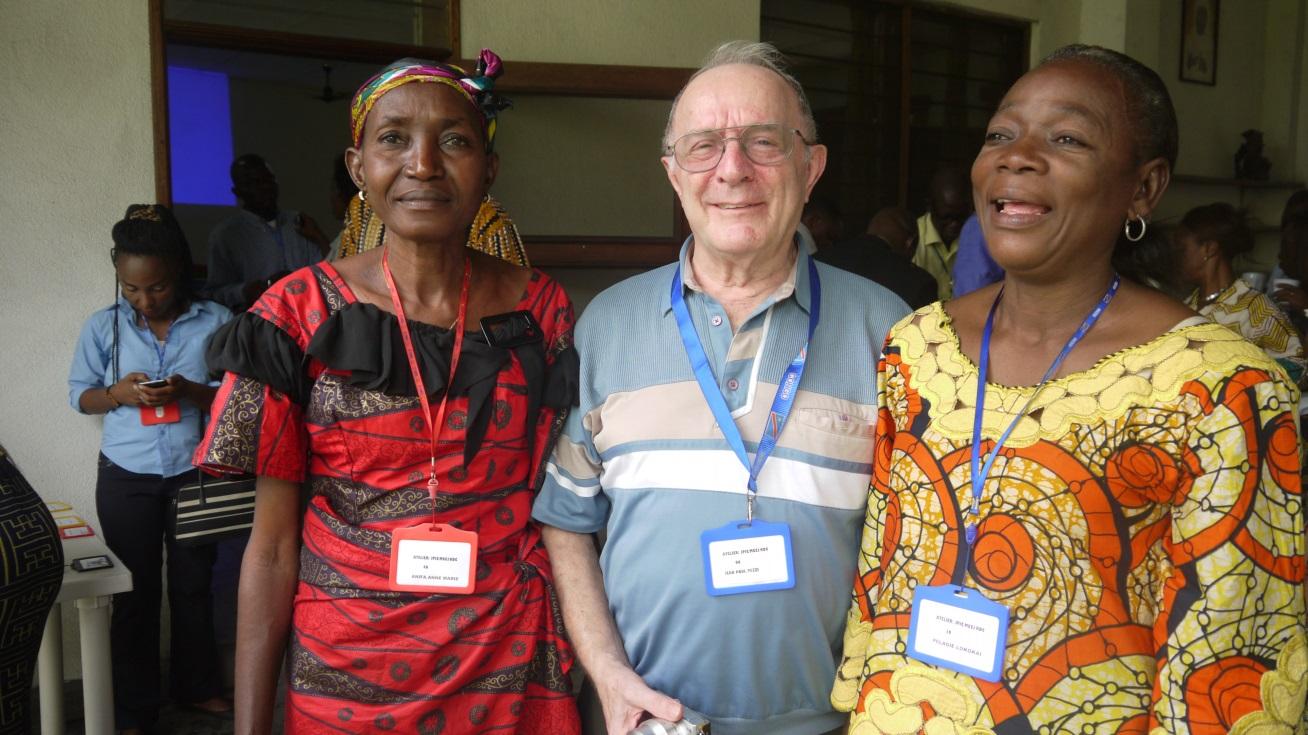Daniel Comboni
Comboni Missionaries
Institutional area
Other links
Newsletter
Saturday, January 20, 2018
Land Grabbing was the theme of the seminar given in Kinshasa, at the Comboni provincial house of Congo on January 13-15, by Fr. Gian Paolo Pezzi [in the picture], a Comboni Missionary and a member of VIVAT. The participants were pastoral agents of some of the parishes in Kinshasa, the members of the commissions of Justice and Peace, lawyers, judges, members of women’s associations, and the city’s Comboni Lay Missionaries. Land Grabbing describes the questionable appropriation of vast extensions of rural areas in developing countries by foreign businesses and governments that severely impact natural resources and life itself. These include water, agriculture, seeds, fishing, climate, migration, human trafficking and internal conflicts.
The main objective of the seminar was to raise the awareness of the participants and give them the knowhow they need to fight for a global and lasting development. Fr. Pezzi used the occasion to redefine some key and problematic terms such as water, land, property rights, property titles, customary law, positive rights, to clear the understanding of facts since, unfortunately, all too often these concepts are the source of arguments and conflicts around the world.
More and more migrations are caused by land grabbing, by conflicts over natural resources and agricultural products, as the African bishops declared at their Synod of 2009: “Unless the agrarian policies of Europe change, within 20 years 300 million Africans will be condemned to hunger and despair.”
The agricultural system, traditional family agriculture, mixed farming and agroforestry, reproduce the natural ecosystem, maintain the biodiversity and do not require intensive management as it is the case with monocultures. This last one, instead, dependent as it is on fertilizers and external intervention, does not favor natural ecosystems and makes them lose their biodiversity.
The objective of land grabbing is the creation of monocultures, namely a dominant or single cultivation of a vegetal species in a region. It is the plantation system: bananas, tobacco, and coffee. In this fashion, the owners have a way to exploit the land and the farmers. Faced with this menace and with this organized destruction that will have negative consequences on future human generations, our consciences are challenged. Today, large landowners – the smart ones – use the rotation and the integration of crops, “but as long as we will not eliminate exclusion and inequities from society and among various peoples, it will be impossible to eradicate violence.” (Pope Francis, EG 59)
Once and for all, we need strategies of action and of struggle in order to protect “our common home.”





